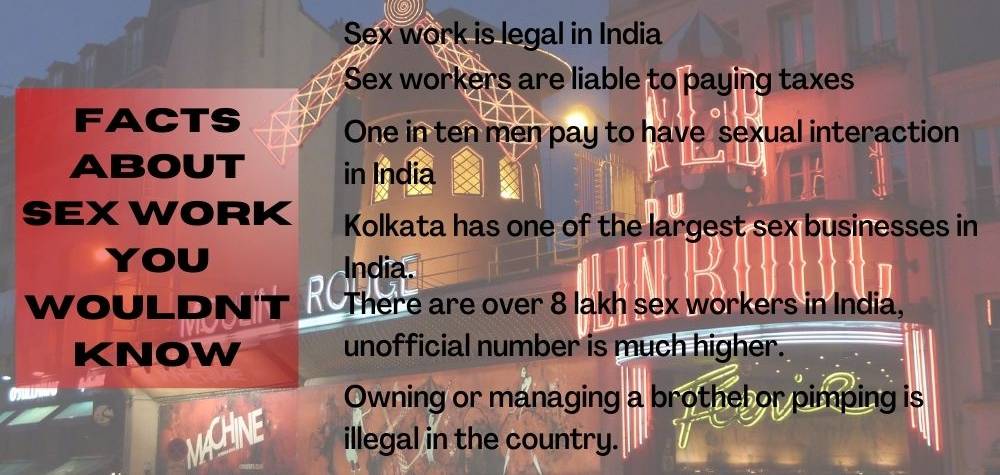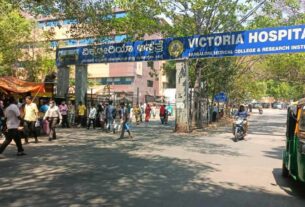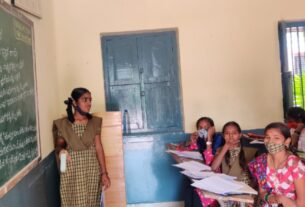The dry rations that were supposed to be distributed to them in the pandemic did not reach them.
It was slightly before lunchtime when Sohel (27) was slicing onions and some green vegetables, preparing for ‘pulao’ for the meal. Putting all the cut vegetables and rice in the pressure cooker, he spoke about how he could hardly make ends meet, even the gas cylinder he needed for cooking was bought privately because he did not have a ration card.
He tried applying for a ration card four months back but could not get one . He was told that he lives alone, has no family members, and has some issues with his documents; hence he was not eligible to get a ration card. He said he was being judged for how he looked and was mistreated at the office.
Sohel has been in sex work since 2013-14. During the lockdown, he did not have much income as there were no clients. He had landed a job as a transport supervisor in an organization slightly before the pandemic but was laid off in May 2020 because the company incurred heavy losses.. He said Non-Governmental Organizations (NGOs) and even a few of his clients helped him by providing ration amongst other things and that’s how he survived.
The Supreme Court of India had directed the governments to issue ration cards and voter ID cards to all sex workers in December 2021 mentioning that ‘Right to Dignity’ is every citizen’s fundamental right irrespective of their work. It was initially directed in 2011 to all states and union territories to issue ration cards and identity documents to sex workers. Even almost a decade later, none of these have been implemented. The court had even directed the district legal service authorities to assist government authorities in distributing dry rations to them during the pandemic.
Bharathi (45) has been a sex worker for almost 15 years now. She is a PL HIV (People Living with HIV) since 16 years and has been on the anti-retroviral treatment (ART) ever since. She does not own a ration card, either. In the pandemic, she was left with no work and no place to live. For almost a year Sangama NGO provided her shelter, food, and all other necessities.
She said it would have been extremely difficult to survive had she not found shelter under Sangama. She did not get any aid or dry ration from the government during the lockdown. Azeem Premji Foundation was one organization that provided 10,000 dry ration kits and health kits, other than that they got no financial support or other benefits from the government.
It has been seven to eight months now that Bharathi and Sohel have associated themselves with the Sangama NGO. They help in providing ration and other necessities, educating other sex workers of their basic rights and even sponsor education for their children in 19 districts of Karnataka. They continue to engage in sex work on the side.
A member of the Karnataka Sex Workers Union (KSWU) said that they never got any dry ration or monetary support from the government. They spoke about different kinds of schemes that were laid out by the government to help widow sex workers and even people belonging to the LGBTQIA+ category. For a variety of reasons, they could not gain any benefit from them.
“Many people who work discreetly do not wish to be named as sex workers; they fear being identified as one on official documents, that is why they try and stay away from it,” said Bharathi.
In a recent development, the Unique Identification Authority of India informed the Supreme Court that it was willing to issue Aadhaar cards to sex workers without insisting on proof of residence/identity, provided they got a certificate from the health department of the states or an official with the National AIDS Control Organization (NACO).
The NACO certificate is provided only to people who have contracted with HIV and are registered at the ART centres at the district hospitals, said Dr. Vartika Gautam, medical officer at the Ministry of Health and Family Welfare. The certificate is made on the first visit of the patient at the ART centre when the patient comes with a positive test. All necessary details, including the Aadhaar card number, are mentioned in it.
Bharathi and Sohel both had Aadhaar cards and voter ID cards but they were still unable to get a ration card. Due to different addresses on the documents, they were told that they were not eligible to get a ration card. Bharathi also said that after the Supreme Court’s judgement in 2011, data of 10,000 sex workers from various of Karnataka was collected by the government but nothing was done after that. Many people had left home at the time in hope of getting aid from the government but they were left with nothing in the end.
Unless the central government provides support to social workers and NGOs, sex workers who are at the grass-root level will not be able to benefit from it, said Shwetha a social activist from Tamil Nadu. Also, she could not understand the correlation of a health certificate or a NACO certificate to provide Aadhaar cards.
NACO identifies different communities across states that would be prone to contracting HIV and helps them, said Santhoshraj Srinivasan, a consultant at NACO. People’s identities are kept confidential and a supervisor is made in charge of providing any kind of help in that particular district.
Many sex workers do not have a permanent home address or have migrated from different states.Hence, it becomes difficult to get access to a ration card or an Aadhaar card, even for the ones like Sohel and Bharathi, who have the cards.

Various projects come up every year, even the government allocates a budget for sex workers every five years. However, the funds do not reach the sex workers in need. Shwetha also added that there is a need to regulate the entire process and help them, especially the ones who were badly affected during the pandemic and were left with no food and shelter.
Ravi Sai, a researcher who has worked extensively on this issue spoke about contradiction of sex work being legal in India but other related activities like running a brothel being not. He also said that sex workers come under the taxable slab. Any person in India earning through legal or illegal means is liable to pay tax. Many sex workers have Permanent Account Number (PAN) cards, Aadhaar or voter id cards because they need to pay taxes especially in case of online transactions. However, other benefits like health cards and ration cards have not been provided to them.
“Sex workers are vulnerable to getting exploited,” Sai said, explaining that they feel ashamed of the work they do because it is still considered a taboo in the country. He drew comparisons with countries like Netherlands and Amsterdam where 30 percent of the workers’ income is given to the government but in return they are provided various benefits. Most importantly, they are considered dignified citizens of the country.
Their community considers government as an ‘alien’ as they believe they have never been recognized or provided any kind of support during the pandemic or otherwise. He added that the government should set up camps in these areas and understand their work for living in more depth. They should be made more comfortable and accepted in the society.




